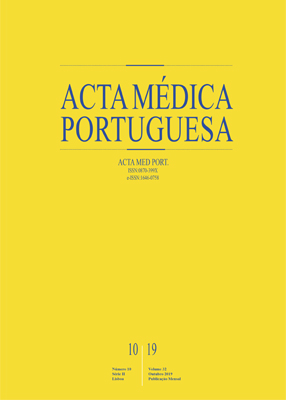Children’s Sleep Habits Questionnaire in Two Subpopulations from Cape Verde and Mozambique: Exploratory and Regression Analysis
DOI:
https://doi.org/10.20344/amp.11841Keywords:
Cabo Verde, Child, Culture, Habits, Mozambique, Sleep, Sleep Hygiene, Sleep Wake Disorders, Surveys and QuestionnairesAbstract
Introduction: Children’s sleep habits are profoundly affected by socio-economic, cultural, and environmental factors. We aim to describe the sleep habits of pediatric sub-populations from Cape Verde and Mozambique using the Children’s Sleep Habits Questionnaire, and to ascertain the determinants of the questionnaire’s score.
Material and Methods: We conducted cross-sectional surveys in surveillance appointments in Cape Verde and in a school in Maputo (Mozambique). The Cape Verde sample included 206 children (mean age: 6.5) and the Mozambique sample 454 children (mean age: 8). The Portuguese version of the Children’s Sleep Habits Questionnaire was used to evaluate the children’s sleep habits. The distributions of the questionnaire’s scores across different levels of the demographic variables were compared using the Mann-Whitney and the Kruskal-Wallis tests. We used regression models to quantify the relationship between the demographic variables and the questionnaire’s scores.
Results: Cape Verde sample: Questionnaire median score: 50 (range 36 – 81). Prevalence of sleep problems: 29.9% (cut-off = 56). Prevalence of parent-reported sleep problems: 22.8%. Co-sleeping: 63%. Bedtime television: 30%. Daytime nap: 63%. Questionnaire scores are associated with the mother’s educational level, the children’s age group, and with the frequency of daytime napping. Mozambique Sample: Median Questionnaire score: 48 (range 35 – 77). Prevalence of sleep problems: 28.4% (cut-off: 52). Percentage of parent-reported sleep problems: 6.9%. Co-sleeping: 29%. Bedtime television: 33%. Daytime nap: 23%. Questionnaire scores are associated with the mother’s nationality, the father educational level, and with the frequency of bedtime television.
Discussion: Parents tend to overestimate the quality of their children’s sleep. The prevalence of sleep disturbances and the cut-off values are higher than observed in previous studies, which may be due to the existence of different standards and cultural expectations across populations. Bedtime television, typically associated with more disturbed sleep, is frequent in both samples. Co-sleeping and daytime napping are frequent in the Cape Verde sample; wetting the bed is common and more prevalent than in previous studies. Bed-sharing increases the parents’ awareness of their children’s sleep quality, contributing to the high prevalence of parent-reported sleep problems.
Conclusion: Parent-reported sleep problems underestimate the Children’s Sleep Habits Questionnaire results. This is not necessarily indicative of more disturbed sleep and might reflect differences in sleep behavior, childcare practice, and cognitions and attitudes towards the concept of ‘normal’ sleep.
Downloads
Downloads
Published
How to Cite
Issue
Section
License
All the articles published in the AMP are open access and comply with the requirements of funding agencies or academic institutions. The AMP is governed by the terms of the Creative Commons ‘Attribution – Non-Commercial Use - (CC-BY-NC)’ license, regarding the use by third parties.
It is the author’s responsibility to obtain approval for the reproduction of figures, tables, etc. from other publications.
Upon acceptance of an article for publication, the authors will be asked to complete the ICMJE “Copyright Liability and Copyright Sharing Statement “(http://www.actamedicaportuguesa.com/info/AMP-NormasPublicacao.pdf) and the “Declaration of Potential Conflicts of Interest” (http:// www.icmje.org/conflicts-of-interest). An e-mail will be sent to the corresponding author to acknowledge receipt of the manuscript.
After publication, the authors are authorised to make their articles available in repositories of their institutions of origin, as long as they always mention where they were published and according to the Creative Commons license.









